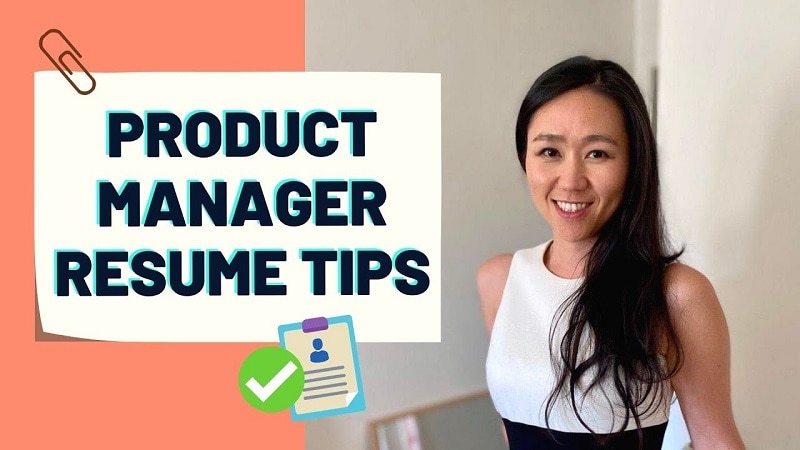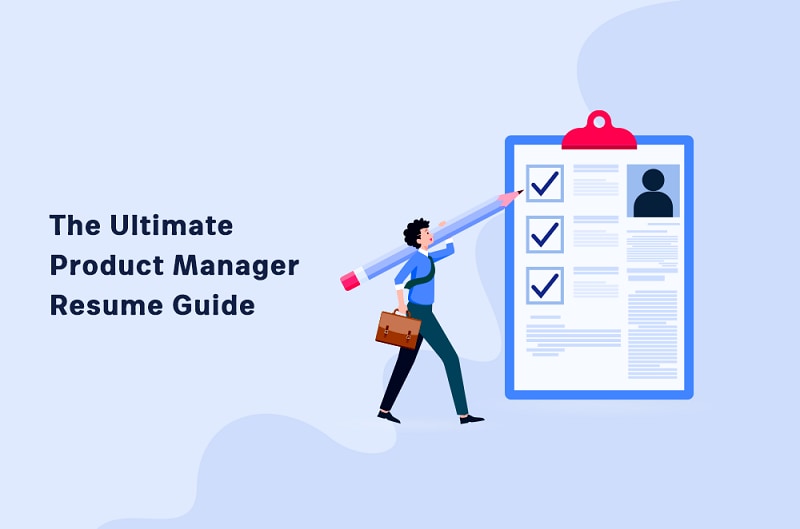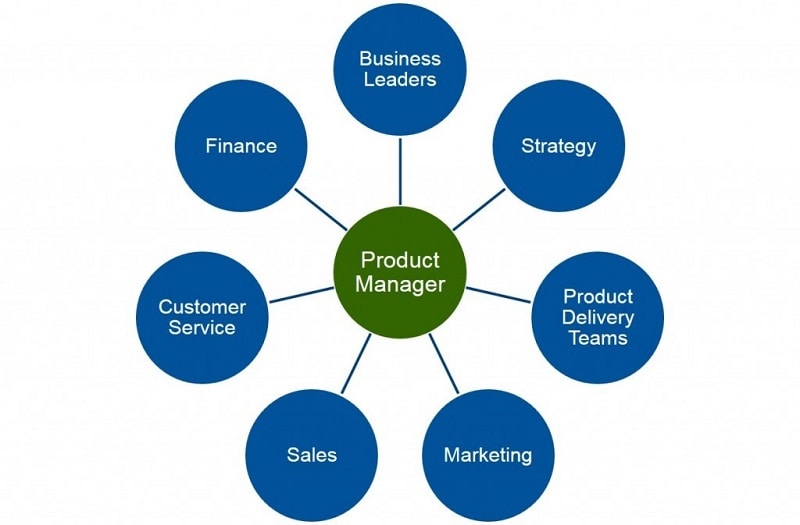Guide to Writing a Great Product Manager Resume
A resume works as a bridge between you and your potential employer. Therefore, you can never undervalue the significance of this important document. So, in order to make an impression in the first attempt, it is important that your product manager's resume is different and stands out from the crowd.

It entirely depends on you how you want to present yourself to the hiring manager. There are many organizations that do not have sufficient time to interview each and every candidate, so in order to save time, they require resumes from candidates and then select the best ones to work with them.
The framework of product manager resume:

1. Personal Information
It takes a balance of the correct information without oversharing in order to create a perfect resume. An impressive resume should have:
- Contact info - Your contact information is about as personal as it gets, and it is important that if you want potential employers to be able to get in touch with you must put in the correct information where you can be contacted at.
- Honors and Achievements - The honors and achievements you earn can set you apart from other applicants, especially when they relate to the job field
- Volunteer Experiences - Your volunteer work is often personal because it's something you do on your own terms. Including volunteer experiences on your resume can show that you are a well-rounded person who gives back, which can make a positive impression.
You can acquire help from a product manager resume sample available online.
2. Academic Background
The vital information that you can include in the academic section of your resume is your degree(s) and the schools you have attended. You can also provide more precise information, including your major and minor, and can also include the year you graduated, although it's not required. Include your grade point average (GPA). Include any honors or awards you have received in school. Extracurricular clubs, charitable groups, or Greek organizations where you were active and/or held a leadership role can also be included under this section. If you have completed any professional development courses and certifications, you can include those as well.
3. Relevant Skills
A General Understanding of Data - You certainly don't need to be a skilled mathematician or statistician, but you must have a basic understanding of how to read data and understand data accurately.
Industry Insights and KPIs – The product manager must be informed about the current market and industry trends and should be able to set and track KPIs, for instance customer acquisition costs, customer conversion rate, daily active users, features usage, user churn, Net Promoter Score, customer satisfaction, and customer lifetime value.
Strategic Thinking –The Product manager must have a decent insight into the market and competition. Strategic thinking will need you to be helpful in defining the company's vision and then work towards that vision with realistic and achievable goals as a product manager.

Basic Business Skills – It doesn't matter if you have a professional degree or not, but is extremely important that you know the business basics. You might know all the ins and outs of your product, but you also need to be aware of what's happening in the company because that can directly affect your product and its development.
Design and User Experience Knowledge - Even though all skills are important, but to have a decent understanding of UX design, etc. is a very vital skill that is possessed by product managers, they need to deliver a unique customer experience. The success of the company is dependent on the UX, therefore it is very important to have basic knowledge of UX, combining this with the knowledge of your UX researcher.
Master Prototyping Skills - One of the worst tasks that a product manager is faced with relates to presenting a product wireframe for showing to the designers. If you are a product manager, you would know the headache that comes along with a presentation of your product wireframe to a potential client. There are different software that product managers can use for prototyping. A few great ones are Wondershare Mockitt and Adobe XD.
Wondershare Mockitt is a creative and brilliant software that can help you with all sorts of product wireframe development. With this software, it becomes incredibly convenient to turn provocative designs magically into rich and interactive prototypes without any coding whatsoever—prototype UI designs anywhere: on the web, PC, Mac, or mobile.

Other common skills - The other usual core skills that are essential consist of teamwork and team building, excellent time-management. Managing time is specifically vital because you are working with different teams and stakeholders all the time, so in order to be able to get things right you must manage your time effectively and wisely, compiling reports and preparing documentation, project management, good delegation skills, prioritization skills, being able to remain objective, presentation skills, being able to lead team meetings, and being able to conduct solid user interviews all are the basic skill which a product manager must-have.
4. Professional Experience
This is the section where recruiters will look to see what your previous work experience has been, what jobs and job titles you have held in the past, you need to provide details of your career arc. Preferably, this section should reflect your career growth. With the passage of time, you have will have unquestionably added skills, experience, and responsibility. This part of your resume should demonstrate how you have developed as a professional, and also providing a sense that you are a determined person who is at all times learning. There are some candidates who have added skills in other, seemingly unrelated fields. It all depends on how you present your information. It is also ok to not include jobs that don't fit the story you're trying to tell the hiring manager.
5. Product Manager Cover Letter
Recruiters are able to cut the pool of cover letters and resumes to a manageable number. On what basis they do it is something you need to look into. Your cover letter and resume are most likely to be rejected if they are not perfect. You must make sure that there should not be any typos or grammatical mistakes. Recruiters will not even consider an applicant that they consider is not qualified at first glance. That first glance at your cover letter is your one opportunity to make a good impression and make it to the next round.

